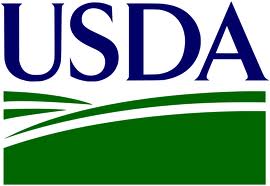 As the produce industry follows the fate of Eric and Ryan Jensen many articles and commentary have surfaced in support of the brothers Jensen. However, these articles and commentary all focus around a significant misconception about the government’s burden of proof. Specifically, the general misconception is that the U.S. Attorney’s Office must prove or otherwise show intent on the part of the Jensen brothers to obtain a criminal conviction. This is wrong!
As the produce industry follows the fate of Eric and Ryan Jensen many articles and commentary have surfaced in support of the brothers Jensen. However, these articles and commentary all focus around a significant misconception about the government’s burden of proof. Specifically, the general misconception is that the U.S. Attorney’s Office must prove or otherwise show intent on the part of the Jensen brothers to obtain a criminal conviction. This is wrong!
The Federal Food Drug and Cosmetic Act (“FD&C Act”) protects the consuming public by allowing the government to regulate the conditions under which food and drugs are manufactured and distributed and it requires those responsible to comply with its provisions. Under the FD&C Act, misdemeanor criminal responsibility does not require intent or consciousness of wrongdoing. On the other hand, felony criminal responsibility requires a knowing violation with the specific intent to defraud or mislead. The FD&C Act also states that a corporation may commit an offense and all persons who aid and abet its commission are equally guilty.
The Jensen brothers are facing misdemeanor criminal charges, which still carry the threat of imprisonment and significant financial penalties. Given the misdemeanor nature of the charges, the U.S. Attorney’s Office does not need to allege or prove any type of intent on the part of the Jensen brothers to obtain a criminal conviction.
The foregoing is but one example of why the Jensen brothers’ criminal case is alarming to the produce industry. With that said, are there any real and meaningful defenses available to the Jensen brothers? The answer is yes!

 On September 30, 2013, Fresh & Easy Neighborhood Market, Inc. filed for chapter 11 bankruptcy protection in the District of Delaware and was assigned case number 13-12569. The Debtor’s voluntary petition estimates: (i) between 10,000 and 25,000 creditors; (ii) holding assets valued between $100 million and $500 million, and; (iii) liabilities between $500 million and $1 billion dollars. This case was assigned to Judge Kevin J. Carey.
On September 30, 2013, Fresh & Easy Neighborhood Market, Inc. filed for chapter 11 bankruptcy protection in the District of Delaware and was assigned case number 13-12569. The Debtor’s voluntary petition estimates: (i) between 10,000 and 25,000 creditors; (ii) holding assets valued between $100 million and $500 million, and; (iii) liabilities between $500 million and $1 billion dollars. This case was assigned to Judge Kevin J. Carey.
 Neither the UCC nor the PACA recognize the term “Price After Sale.” The term is a subcategory of “Open Price.”
Neither the UCC nor the PACA recognize the term “Price After Sale.” The term is a subcategory of “Open Price.” 

 I wanted to take a second and thank everyone who joined me and Freeborn’s Food Industry Team at Michael Jordan’s Steakhouse for a cocktail reception after the Midwest Produce Conference & Expo. Those of you who attended know that Freeborn’s event provides a great way for folks to close out the conference and experience one of Chicago’s “must visit” restaurants. Our event also helps you maximize your networking time in Chicago by providing a great atmosphere to connect with your produce industry peers and colleagues. For those of you who could not make it, we hope to see you in New Orleans for the upcoming PMA show.
I wanted to take a second and thank everyone who joined me and Freeborn’s Food Industry Team at Michael Jordan’s Steakhouse for a cocktail reception after the Midwest Produce Conference & Expo. Those of you who attended know that Freeborn’s event provides a great way for folks to close out the conference and experience one of Chicago’s “must visit” restaurants. Our event also helps you maximize your networking time in Chicago by providing a great atmosphere to connect with your produce industry peers and colleagues. For those of you who could not make it, we hope to see you in New Orleans for the upcoming PMA show. The Official Committee of Unsecured Creditors in the Pro’s Ranch Markets’ bankruptcy case recently retained Freeborn’s Bankruptcy and Financial Restructuring Group to help maximize their recovery in this Chapter 11 case. Specifically, Freeborn possesses considerable experience representing official committees of unsecured creditors in chapter 11 cases involving retail grocers, food service companies, and food distribution companies. Because the attorneys in Freeborn’s Food Industry Team routinely represent these same types of food industry clients, we are highly familiar with the issues affecting both debtors and creditors in this space. This allows Freeborn to be incredibly effective when it comes to maximizing value for creditors.
The Official Committee of Unsecured Creditors in the Pro’s Ranch Markets’ bankruptcy case recently retained Freeborn’s Bankruptcy and Financial Restructuring Group to help maximize their recovery in this Chapter 11 case. Specifically, Freeborn possesses considerable experience representing official committees of unsecured creditors in chapter 11 cases involving retail grocers, food service companies, and food distribution companies. Because the attorneys in Freeborn’s Food Industry Team routinely represent these same types of food industry clients, we are highly familiar with the issues affecting both debtors and creditors in this space. This allows Freeborn to be incredibly effective when it comes to maximizing value for creditors. On July 1, 2013, Belle Foods LLC filed for Chapter 11 bankruptcy protection in the Northern District of Alabama.
On July 1, 2013, Belle Foods LLC filed for Chapter 11 bankruptcy protection in the Northern District of Alabama. On Mary 30, 2013, Tom Karst of The Packer published an article discussing the Pro’s Ranch Markets bankruptcy case and the $7.2 million dollars in anticipated PACA trust claims. Here is a link to Tom Karst’s article:
On Mary 30, 2013, Tom Karst of The Packer published an article discussing the Pro’s Ranch Markets bankruptcy case and the $7.2 million dollars in anticipated PACA trust claims. Here is a link to Tom Karst’s article: